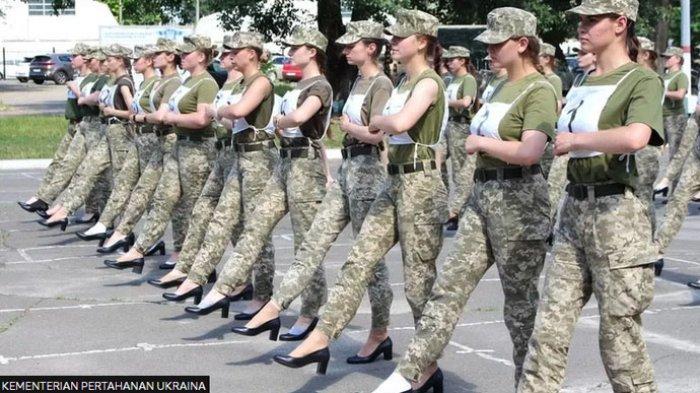Diksia.com - War is a difficult time for everyone who experiences it, including women who choose to take up arms as soldiers.
In the post-Russian invasion war, Ukrainian army women faced extraordinarily difficult challenges.
Not only do they risk losing their lives on the battlefield, but in days of war they also have to deal with emergencies, even if it’s just for their personal needs.
In addition, more and more Ukrainian women are volunteering as combat troops against Russia.
In connection with this situation, the BBC published a report detailing what three of the 5,000 Ukrainian servicewomen who were on the front lines of the struggle experienced, and not just fighting the enemy and sexist attitudes within their own ranks.
A thin, blue-eyed, brown-haired woman is seen exercising in a gym.
That might have been banal if, according to Russian media, the woman was not already dead.
The female character is Andriana Arekhta, a special unit sergeant of the Ukrainian Armed Forces preparing to return to the front lines.
The BBC interviewed Andriana at a rehabilitation center in Ukraine – for her safety at an undisclosed location – after she was injured by a land mine in Ukraine’s Kherson region last December.
Numerous text and video reports in Russian reported his “death” and graphically reported that his body had been split open.
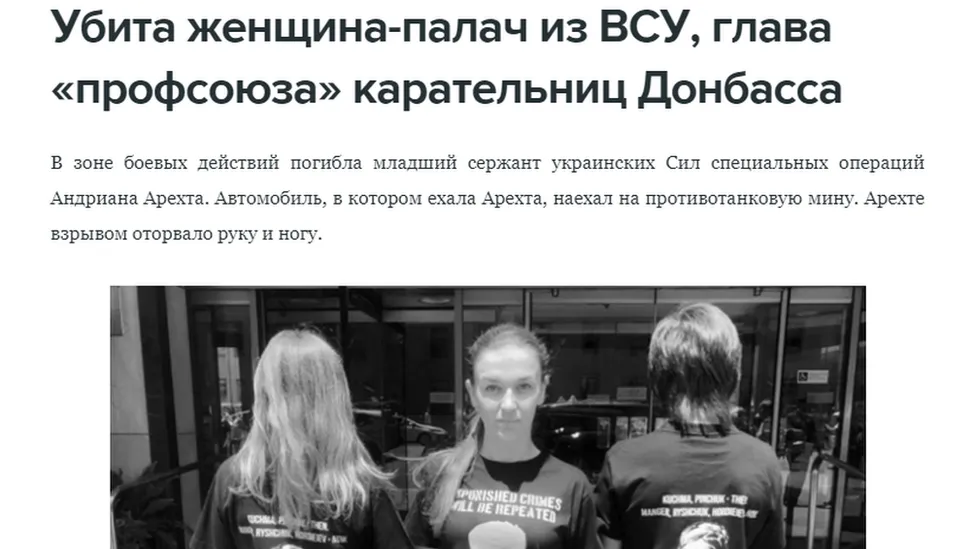
“They published (news) that I (died) with no legs and no hands and was killed by them,” Andriana said. “They are professionals in propaganda.”
According to reports from Russian media, it contains lurid descriptions of him with terms such as “hangman” and “beaten Nazi”.
The news also accused him of cruelty and sadism without any evidence.
News of Andriana’s death broke shortly after the Ukrainian army liberated Cherson from Russian occupation.
“That’s funny. I live and will protect my country,” he said.
Eighteen months after the Russian invasion, 60,000 women are serving in the Ukrainian armed forces.
According to the BBC, Ukraine’s Defense Ministry said more than 42,000 were in military positions – including 5,000 women soldiers on the front lines.
The ministry stressed that according to Ukrainian law, no woman could perform military service against her will.
This means that the above numbers are the personal initiative of these women to take up arms to defend their country.
Also, there are certain combat roles that some feel are better performed by women.
“I came up to my commander and asked him, ‘What is the best thing I can do?’ At the moment.”
He said women had been “romanticized” as snipers since World War II.
In a number of stories, women snipers were more perceptive than men during the World War.
But actually, he said, this reputation has a very practical reason.
“If a man hesitates about whether or not to shoot, a woman doesn’t.”
“Maybe that’s why it’s the women who give birth, not the men,” he added, capturing his three-month-old daughter in the interview.
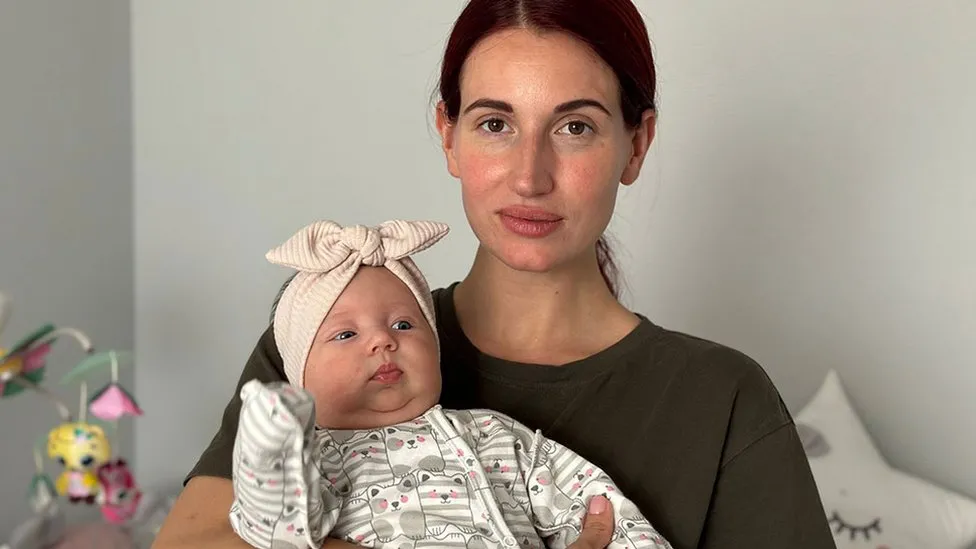
This 31-year-old woman owned a jewelry store before the war.
After the Russian invasion of Crimea, he completed military training but did not join the army until 2022.
She has used her entrepreneurial experience to build a strong following on social media, thereby raising the profile and image of Ukrainian army women.
Like Andriana, Evgeniya was widely labeled an “enforcer” and “Nazi” by the Russian media. Hundreds of reports were made about her role on the front line as a sniper and her personal life.
Working as a sniper, Evgeniya says, is physically and mentally brutal.
“Because you can see what’s going on. You can see how to hit the target. It’s personal hell for anyone who sees it in the [sniper’s] sights.”
Evgeniya and other women at the front are reluctant to reveal the target numbers achieved.
But Evgeniya recalls the heightened emotion he felt when he realized he might have to kill someone.
“I was shaking – all over my body – for 30 seconds and I couldn’t stop it. The realization that you are now about to do something that you cannot go back from.”
“But we didn’t come to them with the war. They came to us.”
The proportion of women in Ukraine’s military has increased since the first Russian invasion in 2014 and is over 15 percent in 2020.
But while many servicewomen served in the fight against the Russians, they said there was an additional fight against sexist attitudes within their own ranks.
Evgeniya says he faced this before gaining his authority and confidence as a front-line sniper.
“As soon as I joined the special forces, one of the fighters came up to me and said, ‘Boy, what are you doing here? Go and make borscht [traditional Ukrainian soup]’ and thought: ‘Are you kidding me?’ could be in the kitchen, but I could also KO’ you.”
Another Evgeniya, Evgeniya Velyka from the charity Arm Women Now – which supports Ukrainian servicewomen, agreed with the servicewoman’s statement.
“There is a strong opinion in society that girls join the army to find a husband.”
He said women had also told him about cases of physical violence.
“We can’t imagine the scale of the problem because not all servicewomen want to talk about it,” she said.
Ukraine’s Deputy Defense Minister Hanna Malyar told the BBC there were only “a few cases” as opposed to the “hundreds of thousands” at work.
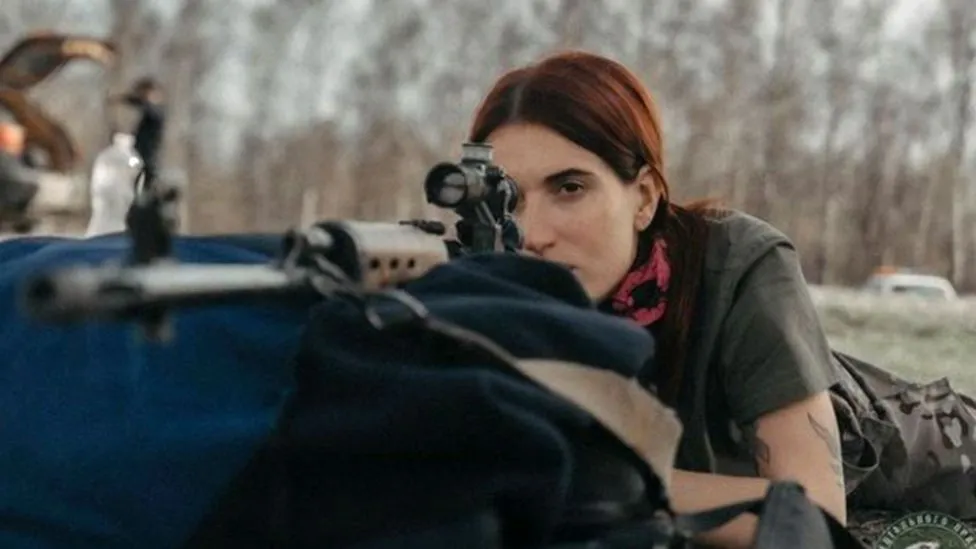
Women in the Ukrainian army are not given gender-sensitive uniforms.
They were given an ill-fitting men’s uniform, including underwear, shoes, and oversized bulletproof vests.
Even Deputy Secretary of Defense Hanna Malyar said that the field uniform for him was also for men and that’s why he had to change because he wasn’t tall.
He added that the military ceremonial uniform for female soldiers included heels.
Currently, if women in the army want to wear a women’s uniform, they have to buy their gear online or turn to charities or crowdfunding.
For this reason, Andriana co-founded a charity called Veteranka (Ukrainian Women Veterans Movement), which works for equal rights for women military personnel and reforms Ukraine’s army laws in line with NATO.
But Malyar says the government has made progress.
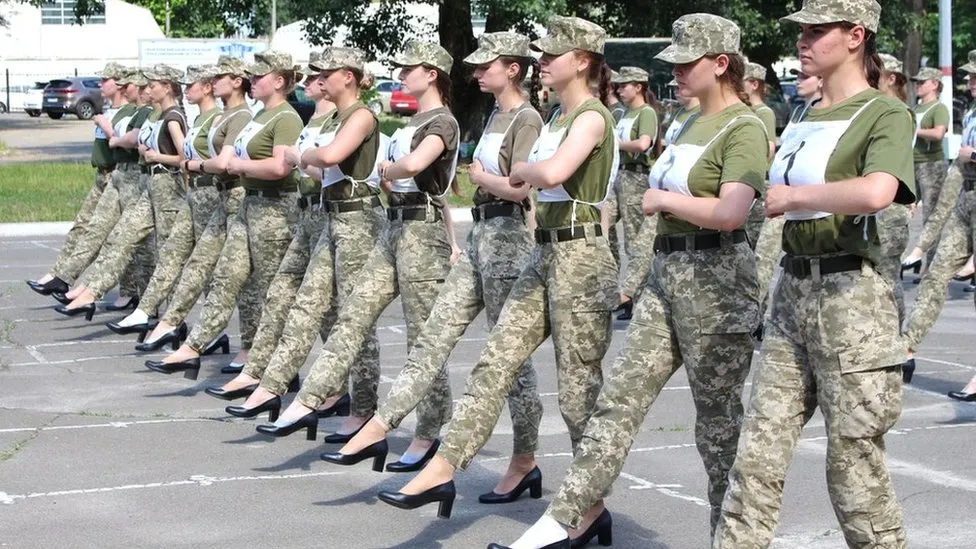
Uniforms for female soldiers have been developed, tested and will be mass-produced in the near future – although she cannot say when.
Sniper Evgenya Emerald said that despite these problems, “war has no gender.”
“In war it doesn’t matter whether you’re a man or a woman. When a rocket hits a house, it doesn’t matter if it’s women, men or children – everyone dies.”
“And at the front it’s the same: if you can be effective and you’re a woman, why don’t you defend your country, your people?”
(oln/*)
